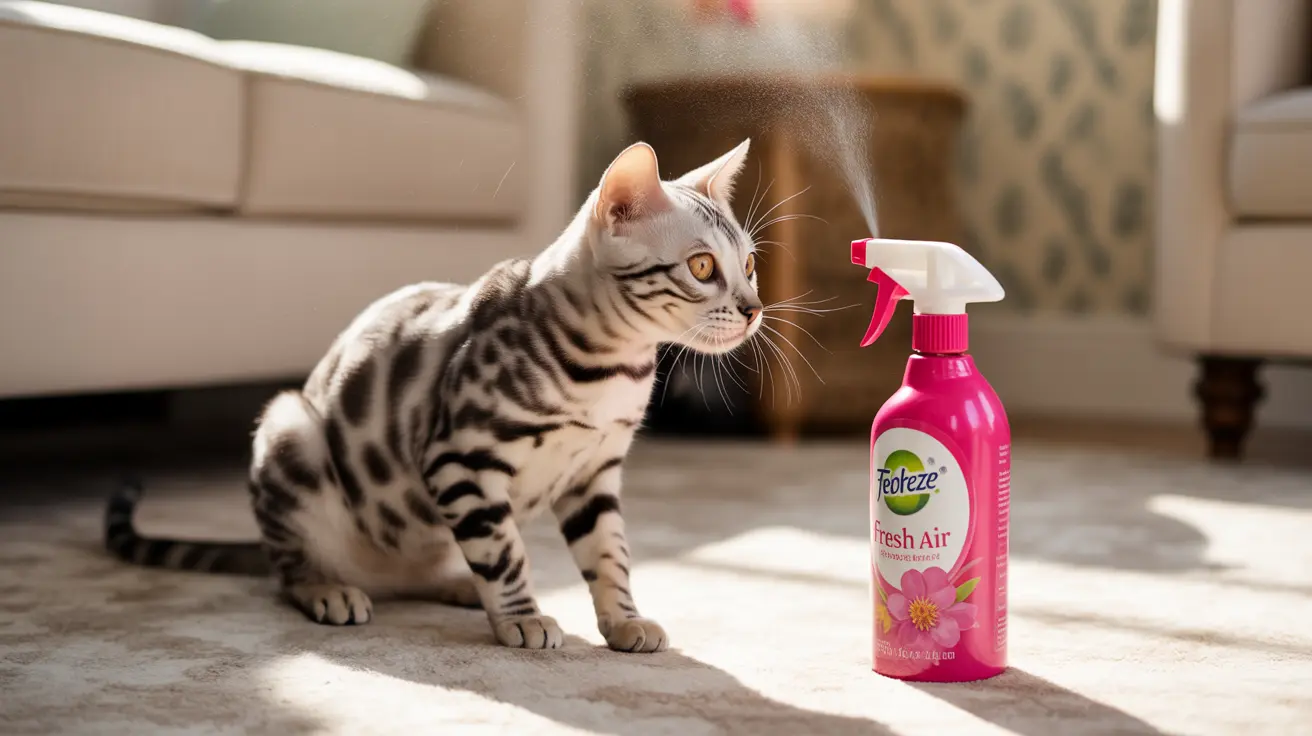Pet owners battling flea infestations often search for quick solutions using readily available household products. One frequently asked question is whether Febreze, the popular odor-eliminating spray, can effectively kill fleas. This comprehensive guide will explore the truth about Febreze's capabilities against fleas and provide important safety information for pet owners.
While some pet owners have reported that Febreze appears to affect fleas on surfaces, it's crucial to understand that this product wasn't designed as an insecticide. Let's examine the facts about Febreze and its relationship with flea control to help you make informed decisions about protecting your pets.
Understanding Febreze and Its Intended Purpose
Febreze is specifically formulated as an odor neutralizer, using specialized compounds to trap and eliminate unwanted smells. The product line includes various formulations for fabrics, air freshening, and pet-specific odor control, but none are designed or approved for pest control purposes.
The primary ingredients in Febreze include cyclodextrins, which trap odor molecules, along with alcohol-based solvents and fragrances. While some of these components might incidentally affect insects, they're not concentrated or formulated for pest control effectiveness.
The Reality of Febreze's Effect on Fleas
When it comes to flea control, Febreze falls significantly short of being an effective solution. While the alcohol content might temporarily stun or dehydrate adult fleas on contact, it cannot:
- Kill flea eggs or larvae
- Provide lasting protection against reinfestation
- Break the flea life cycle
- Serve as a reliable pest control method
Any perceived effectiveness against fleas is likely incidental and insufficient for proper pest management. Veterinary experts consistently warn against relying on Febreze for flea control.
Safety Concerns for Cats and Other Pets
Using Febreze as a flea treatment poses several risks to pets, especially cats. Direct application can lead to:
- Skin irritation and allergic reactions
- Respiratory issues from inhalation
- Digestive problems if ingested during grooming
- Potential chemical burns or more severe reactions
Cats are particularly vulnerable due to their grooming habits and sensitive respiratory systems. The ASPCA and veterinary professionals strongly advise against using Febreze directly on any animal.
Recommended Flea Control Methods
Instead of experimenting with household products, pet owners should rely on proven flea control methods:
- Veterinary-prescribed oral or topical flea medications
- Regular vacuum cleaning of all household surfaces
- Washing pet bedding in hot water weekly
- Professional pest control services for severe infestations
- Consistent preventive treatment as recommended by your vet
Frequently Asked Questions
Does Febreze effectively kill fleas on pet bedding and household surfaces?
No, Febreze is not designed or proven effective for killing fleas. While the alcohol content might affect some adult fleas, it's not a reliable or complete solution for flea control.
Is it safe to spray Febreze directly on cats or other pets to control fleas?
Absolutely not. Spraying Febreze directly on pets can cause serious health issues including skin irritation, respiratory problems, and toxicity if ingested through grooming.
How does Febreze impact adult fleas, flea eggs, and larvae differently?
While Febreze might temporarily affect adult fleas through its alcohol content, it has virtually no impact on flea eggs or larvae, making it ineffective for complete flea control.
What are the risks of using Febreze around pets, especially cats, during flea treatment?
Risks include skin irritation, respiratory issues, allergic reactions, and potential toxicity if ingested. Cats are especially sensitive due to their grooming habits and respiratory systems.
What are the best veterinarian-recommended methods for safely controlling fleas on cats and in the home?
Veterinarians recommend using prescribed flea medications, regular cleaning, and environmental treatment. Professional pest control may be necessary for severe infestations.
Conclusion
While Febreze is excellent for its intended purpose of odor control, it should never be used as a flea treatment solution. The risks to pet health far outweigh any minimal effect it might have on adult fleas. Always consult with your veterinarian for safe, effective flea control methods that will protect both your pets and your home.






